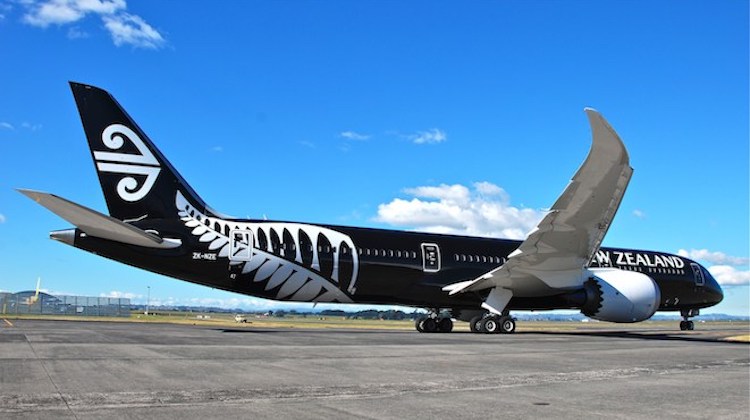
Air New Zealand and two unions representing about 1,000 staff have reached an in-principle agreement on new wages and conditions, leading to the threat of strike action being withdrawn.
The agreement between the airline and the Aviation and Marine Engineers Association and E tū was reached on Wednesday night New Zealand time following three days of mediation.
As a result, the unions have called off a proposed three-day strike that was due to take place on 21, 22 and 23 December.
Members of the two unions, which represent workers across the airline’s line and hangar engineers, aircraft cleaners and other staff, will now vote on the deal.
The lifting of the notice to strike, first announced in early December ensured about 120,000 passengers due to travel on those three days would face no disruptions to their travels.
Air New Zealand chief ground operations officer Carrie Hurihanganui said the negotiations were conducted in good faith.
“We know how important it is to our customers to get where they need to be, particularly at this special time of the year and the negotiating teams have been working diligently to achieve this result,” Hurihanganui said in a statement.
E tū said in a statement its members’ core aims had “largely been achieved”.
The union’s head of aviation Savage said the union would recommend the deal to members at ratification meetings over the coming week.
“Industrial action of this nature is always a last resort and so it’s a positive sign that we’ve reached an agreement in principle,” Savage said in a statement.
“While the process has been tense at times, it is a much improved offer from where we started and maintains standards in aviation. I want to acknowledge the union negotiating teams, especially the delegates, for getting us to this point.
Savage described the relationship between Air New Zealand and the four employee unions as a “union management partnership”.
“We still disagree, sometimes publicly,” Savage said. “But at the heart of that partnership is a commitment to keep working on solutions and maintain productive communication with each other. We have witnessed that this week.”
Both Air New Zealand and E tū said no details about the deal would be released until after union members had been briefed.
However, Air New Zealand has said previously unions had knocked back a proposal of an immediate two per cent pay increase followed by a further three per cent increase after 12 months, and rejected proposals to standardise overtime pay to 150 per cent of the regular pay rate.
Further, the airline said the unions had also proposed aircraft maintenance engineers with five years’ service getting an additional week of annual leave, offering free reserved car parking within 500 meters of their workplace and the “right to renegotiate terms just prior to the busy Christmas season again next year”.




